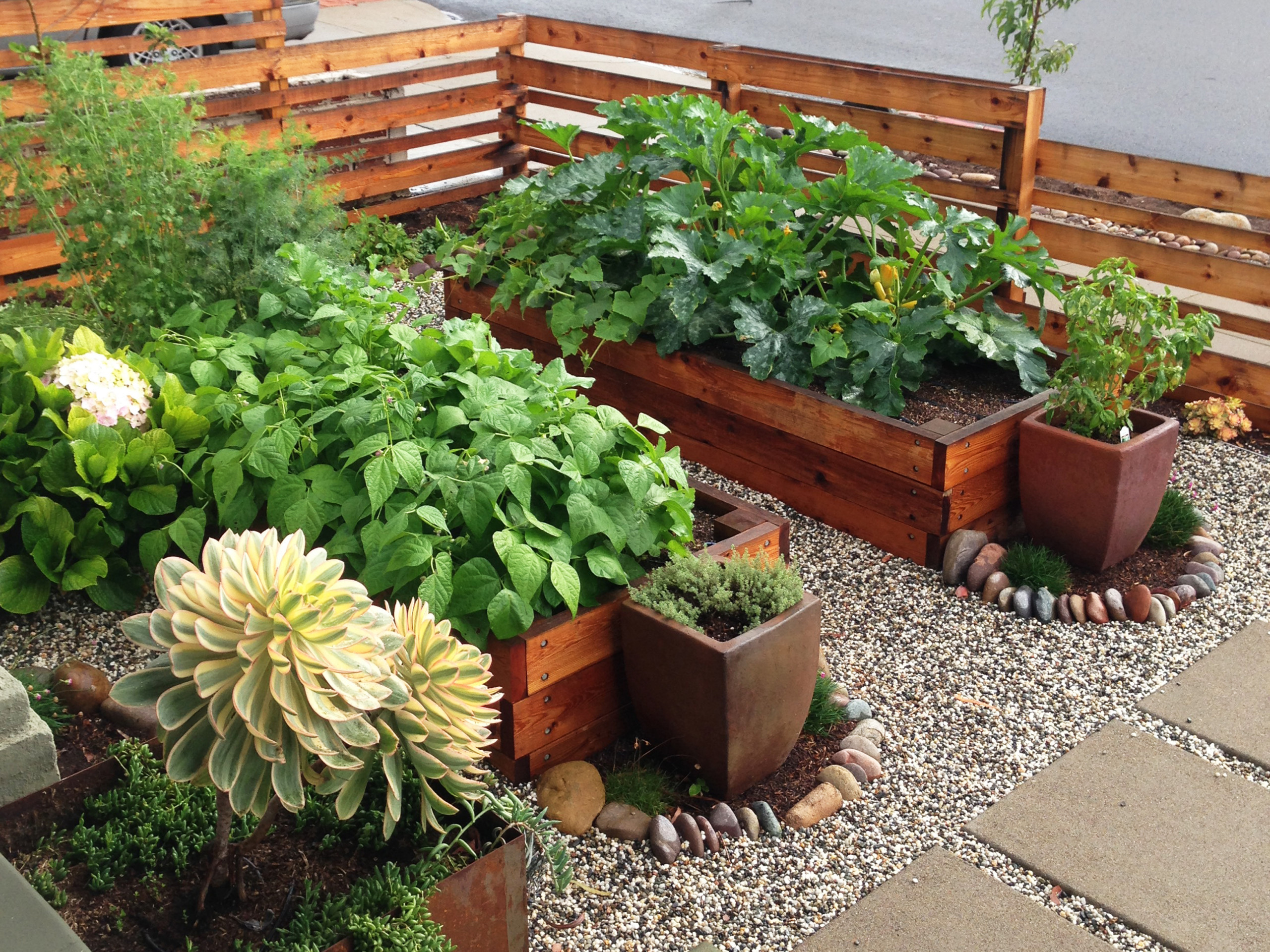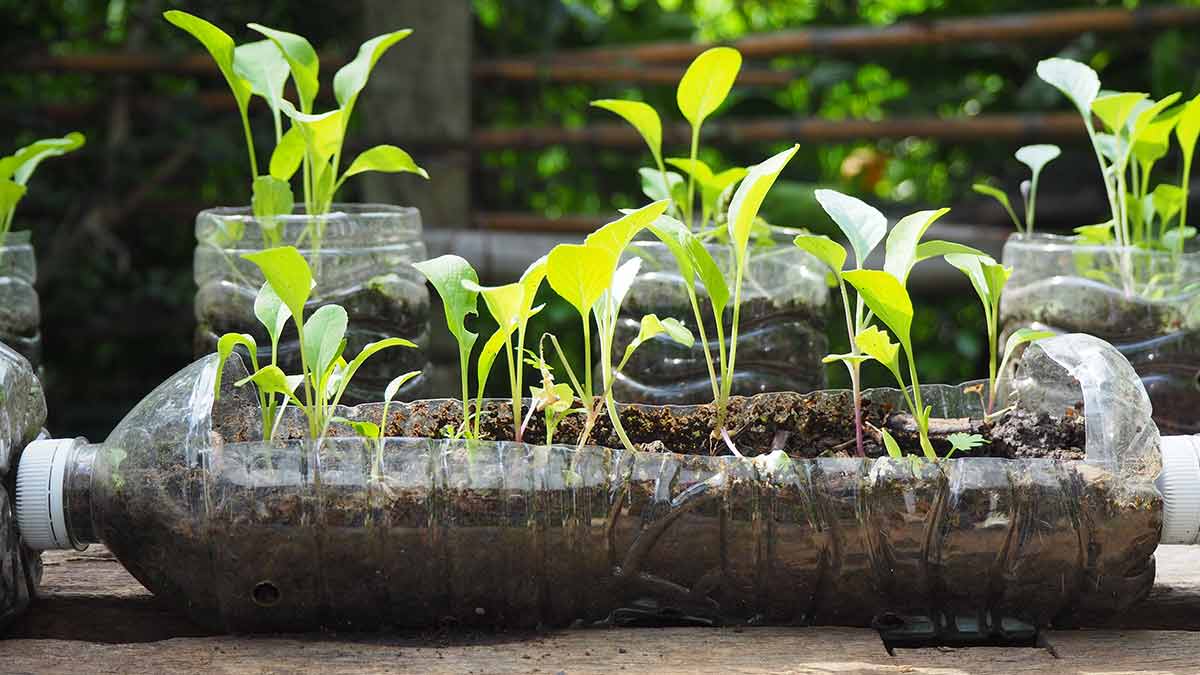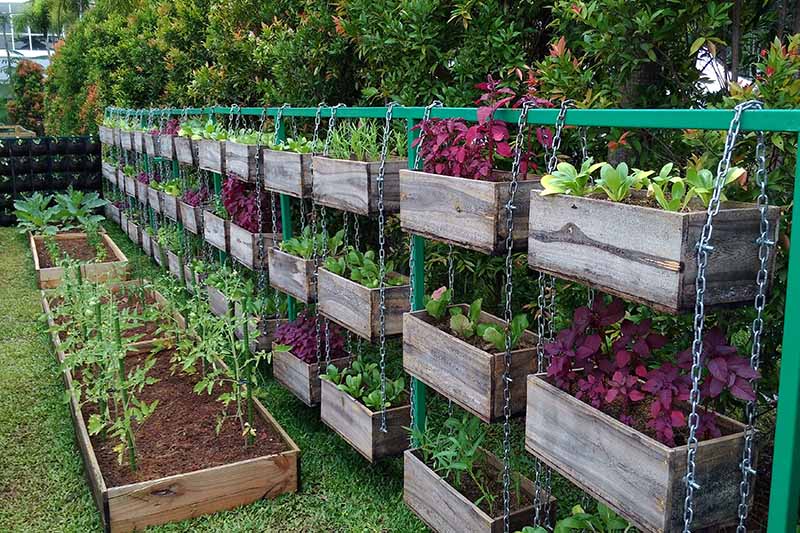
×

Some creative best modern vegetable garden ideas for small gardens are as follows:
Use wall mounted planters, or hanging containers to grow climbing vegetables like tomatoes, cucumbers or beans vertically to save spaces..
Use pots, containers or raised beds to grow vegetables. You can place small containers in balcony or any other flat surface.
Partition your nursery into square foot areas. Plant different vegetables in each square. This method makes easy to manage and utilizes less space.
Create a spiral-shaped garden bed with different levels for planting herbs and small vegetables.

Place window boxes or planters for growing herbs, salad greens, or small vegetables right outside the windows.
Hang baskets or containers from hooks, or a frame to grow cherry tomatoes, peppers or herbs.
The wooden boxes can also be used for planting vegetables in small gardens. These boxes will hold all kinds of vegetables you want to plant in them.
You can place some planting tables in your yard. They can save space and look beautiful.
The top 5 eco- friendly modern vegetable garden ideas are:-
Planting crops together can stop pests and promote healthy growth.
Avoid synthetic pesticides and fertilizers. Use natural alternatives like neem oil and compost to enrich the soil and to protect your plants.
Collect rainwater in a container to irrigate your garden, reducing the need for tap water and conserving resources.
Apply organic mulch like straw or leaves to keep moisture, stop weeds, and to regulate soil temperature, reducing the need for excessive watering.
Use raised beds or containers to utilize space and to control soil quality.

The simple and best way to arrange your vegetable garden are:-
Choose a location that receives at least 6-8 hours of direct sunlight daily. Must ensure that there are no tall trees or buildings casting shade on your garden.
Organize your garden in rows or raised beds, with paths in between for easy walk. Raised beds can help to improve drainage and make it easier to control soil quality.
It is important to rotate plant families from one garden bed to another in each and every growing season. Rotating crops helps prevent soil depletion and reduces the risk of disease and pests.
Group suitable plants together to stop pests and to promote growth. For example, plant basil near tomatoes to stop insects.
Each plant requires a certain amount of space to grow healthy and to produce sufficient harvest. Overcrowding can lead to disease and lower yields.
Test and change your soil as needed with compost or organic matter to improve fertility. The good drainage system leads to prevent waterlogged roots.

Place drip irrigation system to provide continuous moisture without wasting water. Avoid over watering which can promote disease.
Apply organic mulch like straw or wood to keep soil moisture, stop weeds, and to maintain a proper soil temperature.
Place trellis, support or cages for tall crops like tomatoes, cucumbers and beans.
Ensure your garden is easily accessible for planting, maintenance, and harvesting.
Keep a gardening record to track planting dates, varieties, and any other issue you face. This record can help you plan better in coming years.
Apply natural pest control methods such as hand-picking pests, using neem oil.
Remember that the best way to arrange your modern vegetable garden ideas will depend on factors like the size of the space, the types of vegetables you want to grow and the climate.
Read Also: Creative Landscaping Ideas You'll Love to Try
Here are some ideas that help you to create vegetable garden at home:-
Select a sunny spot at your place that receives at least 6-8 hours of direct sunlight daily. Must ensure that it is easily accessible for watering and maintenance.
Decide the size and layout of your garden. You can also create traditional in –ground beds, raised beds, container gardens, or a combination of all of these based on the space you have.
Test your soil and nutrient levels. Change the soil with compost or organic matter to improve fertility and drainage. Consider raised beds or compartment cultivating assuming your dirt quality is poor.
Choose the right variety of vegetables that fix in your climate and meet the family’s preferences. Some easy to grow options for beginners include tomatoes, lettuce, peppers and herbs like basil and parsley.
Companion planting methods helps to maximize plant health and pest control. For example, planting basil near tomatoes can stop insects or pests.
Follow the recommended planting times for each vegetable. Plant seeds or seedlings at the right time and spacing.

Water deeply and consistently, early in the morning or late in the afternoon to minimize evaporation.
Harvest your vegetables when reach their peak ripeness. Regular harvesting helps more production and prevents over ripening.
Keep your garden well maintained by weeding, and addressing any other issue. Rotate crops yearly to prevent soil depletion and disease.
The easiest way to plant multiple vegetable plants in a single space in your garden us to use a DIY divided cart. Use any used wooden cart for the gardening method. Divide it up into well segmented boxes and plant different vegetables in each box. Be it tomatoes or carrots, a DIY wooden cart is perfect for all.
(By: Cherry Jain)
.